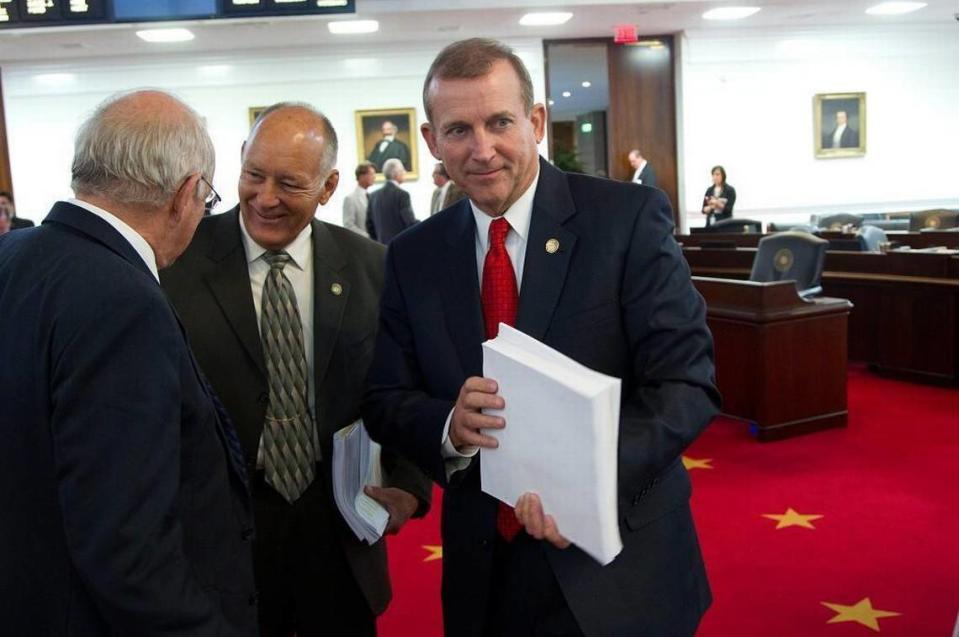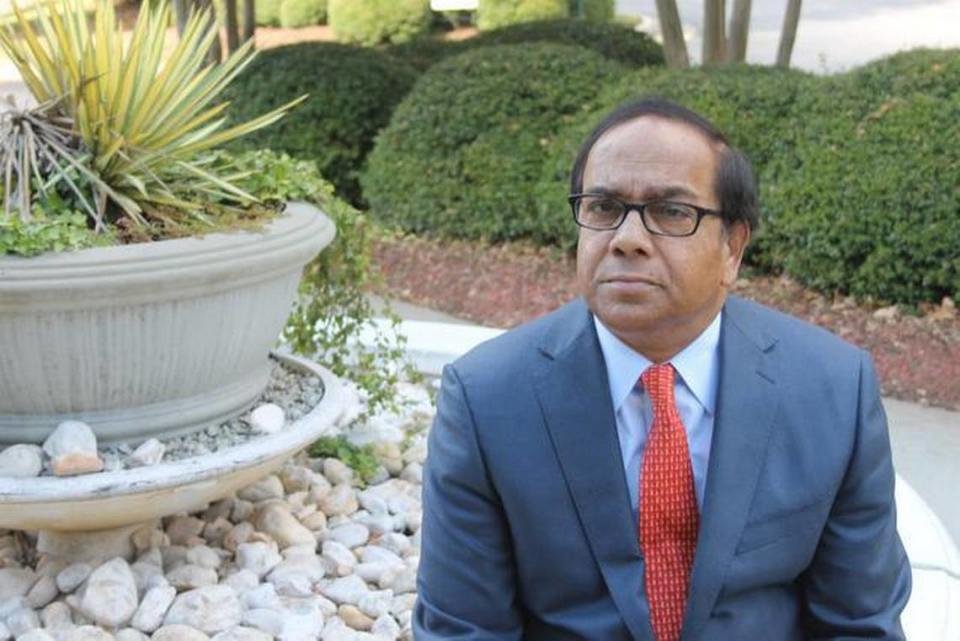NC legislators make their picks for UNC Board of Governors. Here’s who they selected.
- Oops!Something went wrong.Please try again later.
The North Carolina House on Wednesday elected its slate of nominees to the UNC System Board of Governors, picking a mix of new and familiar faces to serve on the board that oversees the state’s public universities.
The House’s nominees were approved in a 116-0 floor vote Wednesday evening, and will join the Senate’s nominees, announced in March. The Senate’s slate of nominees has been criticized for including only white men.
The 24 voting members of the Board of Governors are elected entirely by the General Assembly, which has a Republican supermajority. Each chamber elects six candidates in odd-numbered years.
With the full slate of nominees from the chambers now announced, the board’s racial and political diversity appears to have increased slightly, though women — which account for the majority of students in the UNC System — appeared to lose some representation.
Rep. Kelly Hastings, a Cherryville Republican, told The News & Observer Thursday that the House’s nominees, which include a Black woman and an Indian-American man, are “a diverse group of people” who are “very qualified.”
“It’s always good to have people from different backgrounds. I think that brings a lot of a lot of diversity to the table, especially with a public university system,” Hastings told The N&O.
But diversity is “not the overriding factor” in nominating people to the board, he said.
Most nominees will be reappointed
Combined, the House and Senate’s nominees to the Board of Governors include eight current board members who will be reappointed to their seats: Joel Ford, Mark Holton, Temple Sloan, Michael Williford, Pearl Burris-Floyd, C. Philip Byers, Terry Hutchens and J. Alex Mitchell.
The new nominees to the board by the Senate are:
Haywood White III, an attorney and former New Hanover County commissioner. White is a registered Republican and lives in Wrightsville Beach.
Harry Brown, a Republican former state senator. Brown served 16 years in the Senate beginning in 2004, with 10 years spent as majority leader.

The House also nominated two new members to the board:
Gene Davis, a Raleigh attorney who currently serves on the UNC-Chapel Hill Board of Trustees. His term on that board ends this year. The N&O previously reported business connections between Davis, a registered Democrat, and Republican House Speaker Tim Moore.
Swadesh Chatterjee, a Cary businessman known for building relations between the United States and India. In a profile of Chatterjee in 2014, The N&O reported that Chatterjee, registered as an unaffiliated voter, helped convince former President Bill Clinton to lift sanctions on India, and influenced some of former Gov. Jim Hunt’s education initiatives.

Except for Burris-Floyd and Ford, who are Black, and Chatterjee, who is Indian-American, all of the chambers’ nominees this cycle are white. Burris-Floyd, reelected by the House, is the only woman nominated by either chamber.
With the chambers’ elected members combined with board members whose terms are not up, the board will have five women — down from six on the current board — roughly accounting for 21% of the board. According to enrollment data made available online by the UNC System, 59% of students enrolled across the system in the current semester are female.
The board’s racial diversity will increase slightly with the House’s election of Chatterjee, adding Indian-American representation in addition to four Black members, though it still does not appear to mirror that of UNC System students. According to a UNC System report on the fall 2022 student enrollment across all campuses, almost 35% of students in the system are of a racial or ethnic minority group — a proportion that has increased for 10 consecutive years, the report said.
System has been criticized for political influence
Gov. Roy Cooper in November used an executive order to appoint a commission tasked with reviewing how leaders in the UNC System are selected and offer potential reforms to the process.
The governor has not had the power to appoint members to the Board of Governors since the UNC System was restructured in the early 1970s, but the office was previously able to make appointments to campus-level boards of trustees. That authority was stripped from the office in a 2016 law passed as former Gov. Pat McCrory, a Republican, left office and Cooper, a Democrat, entered.
In a report published last April, the American Association of University Professors (AAUP), a national nonprofit membership group for university faculty, criticized the UNC System for operating under “pervasive and overtly partisan political control,” with the General Assembly “meddling in academic matters for political reasons” through the Board of Governors.
Kimberly van Noort, senior vice president for academic affairs for the UNC System, at the time responded to the report in a letter to the AAUP associate secretary, calling it “disheartening.”
“You offer a relentlessly grim portrayal of one of the nation’s strongest, most vibrant, and most productive university systems,” van Noort wrote. “It’s nearly impossible to square the bleak portrait you’ve created with the thriving campuses we know and love.”
Hastings told The N&O Thursday that “quite a bit of vetting goes into producing the final list of who is actually qualified to go forward as a member of the Board of Governors.”
And given the House’s 116-0 approval of that chamber’s nominees Wednesday, Hastings “thought it was a really strong signal as to the quality of the list of candidates.”

